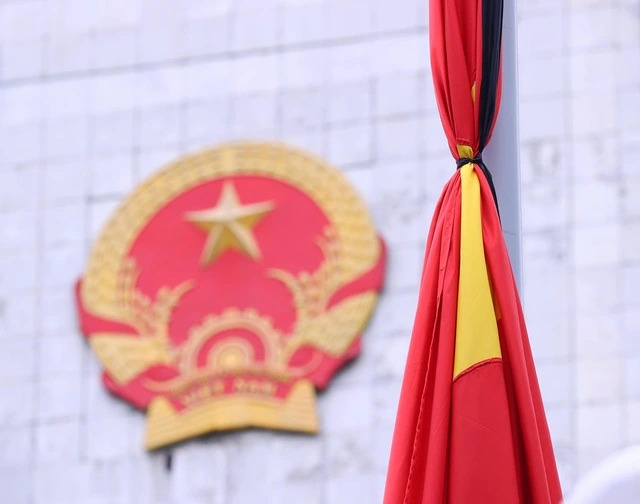 Society
Society


|
| Flag flown at half-mast during a state funeral at Ba Đình Square, Hà Nội. — Photo thanhnien.vn |
HÀ NỘI — The Ministry of Culture, Sports and Tourism has proposed revisions to current funeral regulations, introducing stricter guidelines on honours for high-ranking officials who leave office due to disciplinary violations.
Under the existing rules, individuals holding one of four top leadership roles, including General Secretary, President, Prime Minister, and Chairperson of the National Assembly, are entitled to a state funeral upon their passing.
However, a new provision in the draft amendment stipulates that if any of these officials are dismissed, take early retirement, or leave office due to misconduct, they will no longer be entitled to a state funeral. Instead, they will be honoured with a high-level funeral.
The proposed changes also affect other senior officials typically granted state-level funerals.
These include members of the Politburo and Secretariat, Vice Presidents, Deputy Prime Ministers, Vice Chairpersons of the National Assembly, the Chief Justice of the Supreme People’s Court, the Prosecutor General of the Supreme People’s Procuracy, the President of the Việt Nam Fatherland Front Central Committee and senior generals with service records predating the August Revolution.
Under the draft, if such individuals are dismissed or retire due to disciplinary reasons, they will also receive only a high-level funeral.
In cases where an official is formally removed from office as a disciplinary measure, the funeral will be conducted according to the standard protocol for ordinary public officials and civil servants.
The ministry said the revisions aim to draw a clear line between merit and misconduct, ensuring the funeral protocol reflects an individual's contributions while reinforcing discipline in Party and State personnel affairs.
The draft also mentions proposed changes to funeral customs, such as discouraging the burning of votive paper and the use of rotating wreaths, in an effort to reduce waste and protect the environment. — VNS




